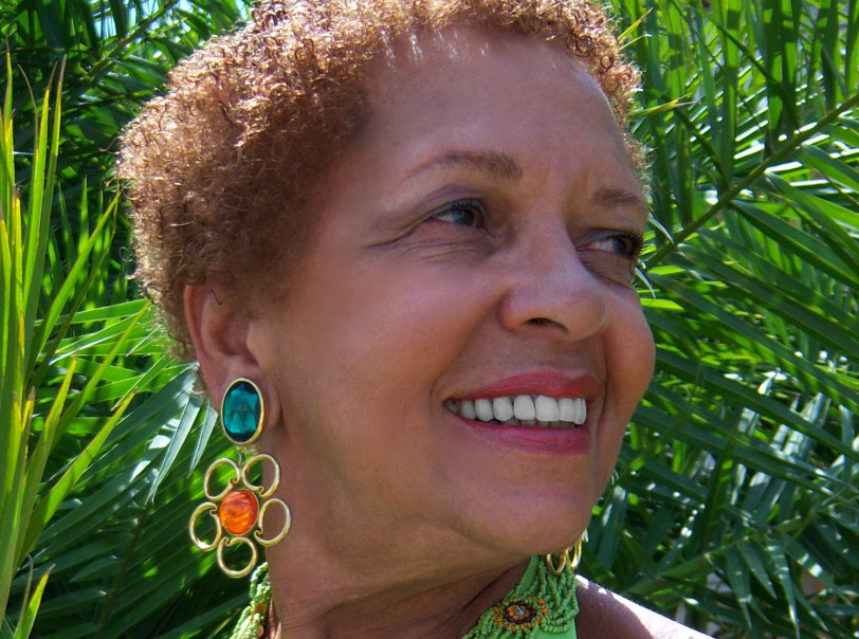Color All the Children Beautiful

Black is beautiful! This was the mantra of my young adult years during the Civil Rights movement. I cut my long, straightened, brown hair and adorned myself with the crowning glory of an Angela Davis afro. From high yalla, through red, chocolate brown and ebony, Black is beautiful! Case closed … or so I thought.
Last week, while watching Oprah’s series “dark girl” and “light girl,” the tears trickled down my cheeks as I heard the words:
“Don’t call me a beautiful black girl.
I’m not black,
black is ugly!”
Words spoken by a child no more than eight years old. What happened to the mantra of fifty years ago?
As Black History Month begins, I revisit this painful part of our history that is only partially resolved. The name is Colorism: racism within an ethnic group. Colorism passes judgment, demeans, and poisons the hearts of our children based on skin tones.
As a child, my personal experience with Colorism was quite limited. The relative fairness of my skin gave me acceptance among light skinned Blacks. Yet I wasn’t a yalla gal, and I had bushy hair, so I was also accepted by my darker peers.
Historically, Colorism originated in the vulnerability of slavery when, uprooted from their culture, Blacks became labeled by their owners. If your mother was “lucky” enough to have been raped by the slave master, your skin was lighter and you were transported to the big house with a rise in status. As a “house nigga” you escaped the backbreaking toil of the darker field hands. Sadly, this externally imposed caste system became part of Black racial identity, favoring light skin over dark, causing a schism within the race, and resulting in a form of racial self-hatred. Unfortunately, this aspect of our nation’s history is not addressed with honesty in the classroom.
Both Whites and Blacks share responsibility for this blight on our history. Clearly, White people created the phenomenon.. But today Black folk perpetuate Colorism. Imbedded in the psyche, it is re-enacted as an emotional response with little heed to its origins.
- Dark girls beat up light skinned girls accusing them of thinking they’re “all that.”
- In the presence of their daughters, Black moms declare, “She sure is cute, but I hope she doesn’t get any darker than this.”
- Light girls feel ostracized from the race for not being Black enough.
- A considerable portion of the Black male population will only date light girls.
It may surprise you to know that Colorism is not limited to the American racial scene. There is a phenomenon that has been around for a long time, but only recently did I know it has a name: global whitening. Within the Asian, Indian, Latino, and African cultures, Colorism exists. Lighter skinned females are considered more desirable, and bleaching cream is a lucrative product in the worldwide cosmetic industry. As Western culture spreads across the planet, Caucasian beauty is the standard towards which many people of color aspire.
I challenge you to look within to identify how your attitudes and behavior are affecting the perpetuation of Colorism.
- Are you the White teacher who assumes that the light skinned student is smarter than his brown counterpart?
- Are you the Black mother who tells her child to stay out of the sun so she doesn’t get any dark
- Are you the Asian mother who gives her teenage daughter bleaching cream?
- Are you the Central American father who doesn’t want his son bringing home a darker Puerto Rican fiancé?
Children are shaped by adult opinion. Unable to form their identity from a point of objective reason, they absorb poison from the grownups and incorporate it into their minds and hearts, creating an identity of self hatred. These children in our families, in our communities, come in all shapes, sizes, and, yes, skin tones.
In honor of Black History Month, I urge you to color all the children beautiful.
Amy Bryant
Author of You CAN Go Home Again
Check out my e-book on Amazon: http://amzn.to/U3NfzG






Thank you, Amy. I did not know before what ‘Colorism’ is. Your blogs are always inspiring.
Thanks, Gisela. I hope more people become informed on this subject, so we can put a stop to it.
so profound
Glad it had that effect on you.
Well written–and enlightening!
Thanks for your encouraging words, Skip.